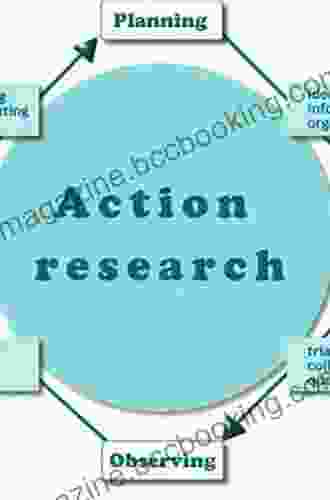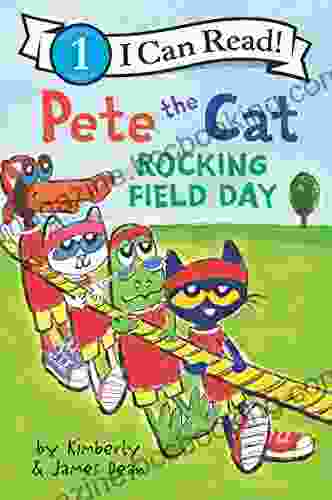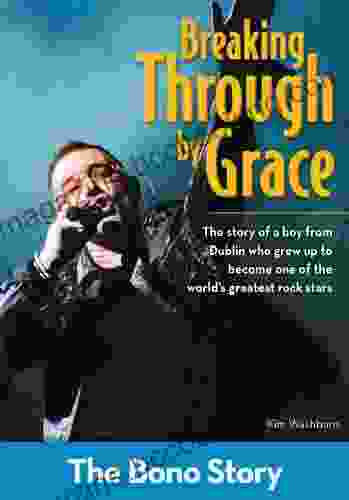Unlock Your Physics Potential: Mastering Cognitive and Metacognitive Problem-Solving Strategies in Post-16 Physics

In the realm of physics, problem-solving is an essential skill that unlocks the gateway to understanding complex concepts and real-world applications. However, many students struggle to effectively navigate the challenges presented by physics problems. The of cognitive and metacognitive problem-solving strategies can revolutionize the learning experience, empowering students to tackle physics problems with confidence and proficiency.
5 out of 5
| Language | : | English |
| File size | : | 11902 KB |
| Text-to-Speech | : | Enabled |
| Screen Reader | : | Supported |
| Enhanced typesetting | : | Enabled |
| Word Wise | : | Enabled |
| Print length | : | 206 pages |
This comprehensive guide will delve into the world of cognitive and metacognitive problem-solving strategies, providing a roadmap for students and educators to enhance their understanding and excel in physics endeavors. We will explore practical techniques, real-world examples, and expert insights to equip you with the tools for success.
Cognitive Problem-Solving Strategies
Cognitive problem-solving strategies focus on the mental processes involved in understanding and solving problems. These strategies provide a structured approach to breaking down problems, identifying key information, and developing logical solutions.
- Goal Analysis: Decompose the problem into smaller, manageable goals. This helps to clarify the problem and identify the steps needed to reach a solution.
- Means-Ends Analysis: Compare the current state of the problem to the desired outcome. Identify the differences and develop a plan to bridge the gap.
- Working Backwards: Start from the desired outcome and work backward, identifying the steps needed to achieve it.
- Diagrammatic Representation: Create diagrams, graphs, or flowcharts to visualize the problem and its components. This helps to simplify complex concepts and identify relationships.
- Inductive Reasoning: Draw general s from specific observations. This can be useful in identifying patterns and making predictions.
Metacognitive Problem-Solving Strategies
Metacognitive problem-solving strategies focus on the awareness and control of one's own thinking processes. These strategies involve monitoring progress, evaluating understanding, and making adjustments as needed.
- Self-Explanation: Explain the problem and its solution to oneself, either verbally or in writing. This helps to identify gaps in understanding and reinforce learning.
- Self-Questioning: Ask yourself questions throughout the problem-solving process. This helps to check for understanding, identify areas of difficulty, and develop critical thinking skills.
- Error Analysis: Analyze mistakes made in problem-solving. This helps to identify misconceptions, improve problem-solving techniques, and prevent future errors.
- Self-Regulation: Monitor your progress, adjust your strategies as needed, and seek help when necessary. This helps to maintain focus, manage frustration, and optimize problem-solving efficiency.
- Metacognitive Awareness: Develop an awareness of your own thinking processes and how they impact problem-solving. This helps to identify strengths and weaknesses, and make informed decisions about problem-solving strategies.
Real-World Examples
Let's explore how cognitive and metacognitive problem-solving strategies can be applied in real-world physics problems:
- Goal Analysis: To determine the trajectory of a projectile, break down the problem into smaller goals: finding the initial velocity, angle of projection, and time of flight.
- Means-Ends Analysis: If the desired outcome is to determine the acceleration of a falling object, start by identifying the known variables (distance and time) and the desired variable (acceleration).
- Self-Explanation: After solving a problem, explain the steps taken and the reasoning behind them to reinforce understanding.
- Self-Questioning: While solving a problem, ask yourself questions such as "Does this make sense?" or "What assumptions am I making?" to check for understanding and identify potential errors.
- Self-Regulation: If you encounter a difficult problem, take a break, review the problem-solving process, and seek help if needed to maintain focus and optimize problem-solving efficiency.
By embracing cognitive and metacognitive problem-solving strategies, students and educators can unlock the full potential of physics learning. These strategies provide a structured approach to understanding complex concepts, developing effective problem-solving skills, and fostering a deep appreciation for the beauty and wonder of physics. With practice and perseverance, these strategies will transform the learning experience, enabling students to excel in physics endeavors and cultivate a lifelong passion for scientific exploration.
5 out of 5
| Language | : | English |
| File size | : | 11902 KB |
| Text-to-Speech | : | Enabled |
| Screen Reader | : | Supported |
| Enhanced typesetting | : | Enabled |
| Word Wise | : | Enabled |
| Print length | : | 206 pages |
Do you want to contribute by writing guest posts on this blog?
Please contact us and send us a resume of previous articles that you have written.
 Book
Book Novel
Novel Page
Page Chapter
Chapter Text
Text Story
Story Genre
Genre Reader
Reader Library
Library Paperback
Paperback E-book
E-book Magazine
Magazine Newspaper
Newspaper Paragraph
Paragraph Sentence
Sentence Bookmark
Bookmark Shelf
Shelf Glossary
Glossary Bibliography
Bibliography Foreword
Foreword Preface
Preface Synopsis
Synopsis Annotation
Annotation Footnote
Footnote Manuscript
Manuscript Scroll
Scroll Codex
Codex Tome
Tome Bestseller
Bestseller Classics
Classics Library card
Library card Narrative
Narrative Biography
Biography Autobiography
Autobiography Memoir
Memoir Reference
Reference Encyclopedia
Encyclopedia Kevin Lee Allen
Kevin Lee Allen Kelly Speck
Kelly Speck Marcus Thompson
Marcus Thompson Kyle Chayka
Kyle Chayka Kayode Odusanya
Kayode Odusanya Kenya Hunt
Kenya Hunt Mark A Noll
Mark A Noll Robert Jervis
Robert Jervis Tara Brach
Tara Brach Kiku Hughes
Kiku Hughes Keenan
Keenan Kelly Quindlen
Kelly Quindlen Insight Traveller
Insight Traveller Lena Epps Brooker
Lena Epps Brooker Katherine Kurtz
Katherine Kurtz Kieran Mccarthy
Kieran Mccarthy Katherine Addison
Katherine Addison Mike Malloy
Mike Malloy Ken Mcgarrie
Ken Mcgarrie Rod Smith
Rod Smith
Light bulbAdvertise smarter! Our strategic ad space ensures maximum exposure. Reserve your spot today!
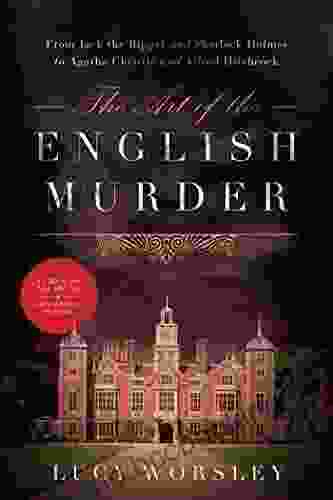
 Owen SimmonsStep into the Chilling World of "The Art of the English Murder": Unraveling...
Owen SimmonsStep into the Chilling World of "The Art of the English Murder": Unraveling...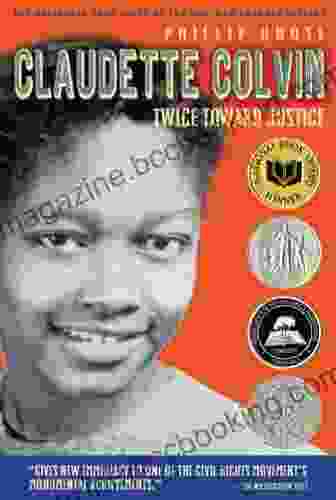
 J.D. SalingerClaudette Colvin: Twice Toward Justice - A Story of Courage, Determination,...
J.D. SalingerClaudette Colvin: Twice Toward Justice - A Story of Courage, Determination,... Donald WardFollow ·19k
Donald WardFollow ·19k Derrick HughesFollow ·18.8k
Derrick HughesFollow ·18.8k Clark BellFollow ·5.7k
Clark BellFollow ·5.7k Haruki MurakamiFollow ·3.9k
Haruki MurakamiFollow ·3.9k Oscar WildeFollow ·17.9k
Oscar WildeFollow ·17.9k Julio Ramón RibeyroFollow ·15.4k
Julio Ramón RibeyroFollow ·15.4k Barry BryantFollow ·5.9k
Barry BryantFollow ·5.9k T.S. EliotFollow ·19.9k
T.S. EliotFollow ·19.9k
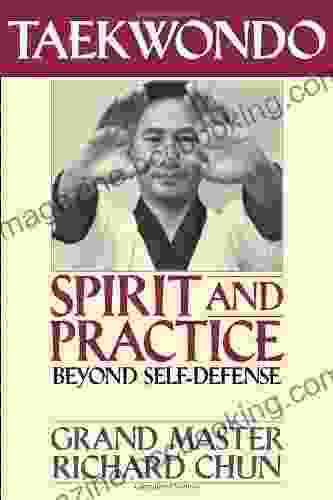
 Joshua Reed
Joshua ReedUnveiling the Profound Essence of Taekwondo: Spirit and...
Taekwondo, an ancient...
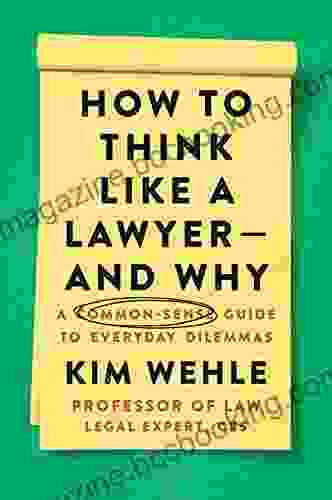
 Clarence Brooks
Clarence BrooksUnveiling Clarity: The Common Sense Guide to Everyday...
In the labyrinthine world of legal...

 Anthony Wells
Anthony WellsBless Me, Ultima: A Literary Odyssey into the Heart of...
In the tapestry of American literature,...

 Alexandre Dumas
Alexandre DumasPioneer Life Or Thirty Years A Hunter - A Captivating...
Discover the Raw and...

 Samuel Beckett
Samuel BeckettThe Mike Fisher Story: An Inspiring Tale of Faith,...
Prepare to be...
5 out of 5
| Language | : | English |
| File size | : | 11902 KB |
| Text-to-Speech | : | Enabled |
| Screen Reader | : | Supported |
| Enhanced typesetting | : | Enabled |
| Word Wise | : | Enabled |
| Print length | : | 206 pages |


